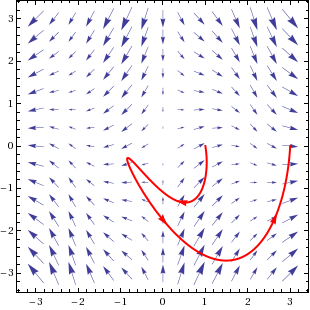
Office: 109 Altgeld Hall,
Phone: (217)244-4697,
Email: jmmackay at illinois dot edu
Section FD1 meets TR (Tuesday, Thursday) 8:00-8:50 in 141 Altgeld
Section FD2 meets TR (Tuesday, Thursday) 2:00-2:50 in 441 Altgeld
Instructor: Arindam Roy
Office: 108 Altgeld Hall
Email: roy22 at illinois.edu
John Mackay: Monday 11-11:50, Thursday 11-11:50.
Arindam Roy: Tuesday 11-11:50, Thursday 12-12:50.

Calculus is the study of change. In single-variable calculus (i.e., Calculus I and II) you have seen how to study the behavior of quantities that depend only on a single variable. Real life situations are often more complicated. For example, we want to be able to understand how a particle moves in three dimensional space, the flow of air over a wing, or how to optimize profit for a production process that depends on choices of many different parameters. Multi-variable calculus (Calculus III) gives us powerful tools to approach these kind of problems.
In this course we will study limits, differentiation and integration for vector-valued functions and functions of several variables. We will also introduce ideas like vector fields, curves and surfaces in this context. (The picture above gives an example of a bug crawling through a force field. A line integral tells us how much energy this takes. There are more realistic examples.) We'll finish by studying amazing generalizations of the fundamental theorem of calculus into this multi-dimensional world: Green's Theorem, Stokes' Theorem and the Divergence Theorem.
Note that, as an Honors section, this class requires departmental approval to register. If you want to register, please go to the Undergraduate Mathematics Office in 313 Altgeld Hall.
This class splits up into two smaller discussion sections on Tuesdays and Thursdays. Attending these sections is essential, since they will often cover parts of the course that are not covered in lectures. There will be a mix of short lectures by the instructor, time for problem solving in groups, and open discussion time, depending on where we are in the course.
There will be weekly homework assignments, collected at the start of class on Wednesday. The first homework assignment will be due the second week of class.
You are free (and encouraged) to work with fellow students on the homework problems.
However, you must write up your final solutions by yourself.
On each assignment write one of the following statements:
Your lowest homework score will be dropped.
There will be three hour long exams in class, and a final. The class exams are set to be on September 29, October 27, and December 1.
(Note that this is provisional and may be adjusted as the semester progresses.)
The final will be on Friday, December 17, 1:30-4:30 pm, and will cover all the material we have seen on the course.
Your grade will be determined as follows:
15% homework, 3 * 15% hour exams, 40% final.
Letter grades will be assigned according to: A-/A/A+ 90%, B-/B/B+ 80%, C-/C/C+ 70%, D/D+ 60%, F for less than 60%. This may be adjusted downwards if necessary.
I reserve the right to give a lower grade in exceptional circumstances, such as failing to complete multiple homework assignments, or missing exams without reason. Cheating may result in a substantially lower grade, or even an F.
If you are ill or otherwise unable to complete an assignment on time, or take an exam, please get a letter from the dean's office (http://www.odos.uiuc.edu/).
To ensure that disability-related concerns are properly addressed from the beginning, students with disabilities who require assistance to participate in this class, or alternative exam arrangements, are asked to contact me during the first week of class.
— Return Home —